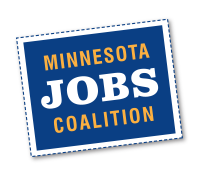PIM: GOP ’14: Who’ll stop the DFL’s reign in Minnesota?
Paul Demko
St. Paul Legal Ledger / Politics In Minnesota
March 27, 2013
Republicans will have two opportunities in 2014 to break that losing skid, with U.S. Sen. Al Franken and Gov. Mark Dayton both up for re-election. The names of numerous potential candidates are already floating in the political ether.
The gubernatorial contest appears to be the more enticing race at this early point in the election cycle. The most recent polling by the Star Tribune showed Dayton’s approval rating dipping below 50 percent for the first time in the wake of his poorly received January tax plan, which drew fire for pitching a sales tax expansion that included business to business services — a proposal that he has since dropped.
State Sen. Dave Thompson, R-Lakeville, has recently indicated interest in seeking the state’s top elected office. The second-term legislator and former talk radio host says he will make a decision after the legislative session wraps up. “I’m considering seriously running for governor,” Thompson said. “I’m in the business of gathering information and determining whether this is the right path, and I will make that decision over the next several weeks. ”
Similarly, Hennepin County Commissioner Jeff Johnson has been exploring the possibility of a run and expects to make a decision by May. “I’m ready to go, but I need to make sure that we can make it work as a family without causing too much stress,” said Johnson, who also serves on the Republican National Committee.
While those two have been the most forthright about their ambitions, other names are also consistently mentioned. Last October, Scott Honour retired as senior managing director of the Gores Group, a global investment firm. In the press release announcing the personnel move, it noted that Honour was returning to his home state of Minnesota to pursue “public service and charitable activities. ”
Since then Honour has been exploring the possibility of running for governor. He would bring serious fundraising chops to the contest. Honour was chair of 2012 GOP presidential nominee Mitt Romney’s finance team in Minnesota. In July he hosted a fundraiser for the campaign that featured New Jersey Gov. Chris Christie.
Other names being discussed for the gubernatorial contest: Sens. Julie Rosen, R-Fairmont, and David Hann, R-Eden Prairie, and former House Speaker Kurt Zellers, R-Maple Grove.
Republicans argue that Dayton has shown a lack of strong leadership, pointing in particular to his rapid back-pedaling on his sales tax proposal when criticism surfaced. “He’s joined at the hip with the DFL-led Legislature,” said veteran GOP political consultant Gregg Peppin. “I think ultimately his fate lies in what happens this session and next session and what the Democrats do. I am interested to see how aggressive a role Dayton plays in the budget debate coming up here. ”
Hegseth mulls another Senate bid
The field for the Senate contest is even less settled. That’s potentially problematic, because any candidate hoping to be competitive against Franken will need to raise millions of dollars. The DFL incumbent closed out 2012 with $1.3 million in the bank. During the 2008 election cycle, Franken raised more than $18 million.
Pete Hegseth is one potential challenger. The former executive director of Vets for Freedom, who received multiple combat awards for his service in the U.S. Army National Guard, sought the Republican Party endorsement last year to take on Klobuchar. But GOP activists passed over him to back Bills, and Hegseth opted not to run in the primary. Republicans may be regretting that decision, given the drubbing that Bills took.
Hegseth is now completing a master’s degree from the John F. Kennedy School of Government at Harvard University. He expects to return to Minnesota upon completing his coursework in May or June. “The Senate race is something I’m open to,” Hegseth told Capitol Report. “I’m not actively building a team. But I am looking at it and willing to consider it, provided the circumstances are right. ” Another name that consistently pops up is Bill Guidera, a senior vice president at News Corporation and the current finance chair for the state Republican Party. Guidera has been discussing a possible run against Franken with Republican insiders in recent months, but didn’t return a call from Capitol Report seeking comment.
Two other potential candidates who are generating buzz enjoy name recognition from their careers as professional athletes. St. Paul native Matt Birk recently retired from the National Football League after a 15-year career, primarily as a center for the Vikings. He’s already dipped his toe into politics, penning an op-ed piece for the Star Tribune in October voicing opposition to gay marriage. In addition, Birk appeared at a fundraiser for the campaign in support of requiring voters to show photo identification at the polls. The other name being discussed as a possibility has little political profile: former Twins catcher and broadcaster Tim Laudner.
Republican U.S. Reps. John Kline, Michele Bachmann and Erik Paulsen have also not explicitly ruled out a run for the Senate in 2014. But they would be giving up safe seats and seniority, which makes them unlikely to make the leap.
State GOP chair Pat Shortridge, who steps down from that post next month, lumps Dayton and Franken together in making the case for why they’re vulnerable. “[Dayton] benefits from low expectations; I think Sen. Franken likewise,” Shortridge said, invoking the turbulent tenure of former Independence Party Gov. Jesse Ventura. “After the Ventura era, I think people anticipate that both Franken and Dayton would do things that semi-regularly embarrass the state. So the bar is fairly low. ”
Republican Party’s woes continue
If Republicans are going to snap their statewide losing streak in 2014, they’ll need to develop a more effective campaign infrastructure than has been in evidence in recent election cycles. Most notably, the state Republican Party has been mired in debt since the 2010 gubernatorial recount. While the party is no longer hemorrhaging money, it still has in excess of $1 million in unpaid bills.
The party’s next chair, who will be elected on April 6, will be charged with making it relevant in statewide contests again. There are four candidates for the post, but former state Rep. Keith Downey, of Edina, is widely expected to win.
“Clearly the party’s in much better shape, but nowhere near good enough shape relative especially to a very competitive election cycle such as we’ll have in 2014,” Shortridge said. “I think the party will be in much better shape to do the blocking and tackling that you need parties to do, which is basically voter identification, targeting and turnout. ”
But some Republican insiders are less optimistic about the party’s chance to play a significant role during the 2014 election. Veteran GOP operative Ben Golnik argues that as long as the state GOP continues to carry debt in excess of $1 million, it won’t be effective. He believes that both the Senate and gubernatorial contests will end up having competitive GOP primaries.
“As long as the party has a sizable or a significant amount of debt, I think it makes the value of the endorsement almost nil,” Golnik said. “There’s no way they’re going to be able to spend money on TV, radio, direct mail, any of that stuff. I think the party endorsement is as weak as it’s ever been at present. ”
Regardless of the party’s financial shape, most political observers agree that there is a need for additional development in the GOP-aligned independent expenditure universe. Since the electoral drubbing of 2012, two significant developments have taken shape on that front. Golnik and another GOP strategist, Tom Erickson, started the Minnesota Jobs Coalition. That group has been focused primarily on keeping the heat on Dayton and DFL legislators. For instance, Erickson was in Duluth last week to record Dayton’s speech in support of his revised budget and speak to the press. In addition, they’ve been to more than half a dozen town hall meetings featuring DFLers in swing districts.
In addition, the Minnesota Action Network is a newly established nonprofit group that’s linked to the American Action Network. Former U.S. Sen. Norm Coleman and former state Rep. Laura Brod, of New Prague, are the primary players involved. Because of its nonprofit status, the group won’t be able to explicitly endorse candidates, but it will be engaging in issue advocacy.
Shortridge argues that Alliance for a Better Minnesota, which has spent millions of dollars in recent election cycles to bolster DFL candidates and causes, has been much more effective than GOP-aligned groups. “We can’t let the Alliance for a Better Minnesota have another election cycle where they basically have the field to themselves. They basically had the 2010 and 2012 cycles where they dominated,” Shortridge said. “I think everybody realizes across the board that it can’t happen in 2014 if we hope to be successful. Somebody’s got to be out there from the conservative perspective defining the position landscape. ”




